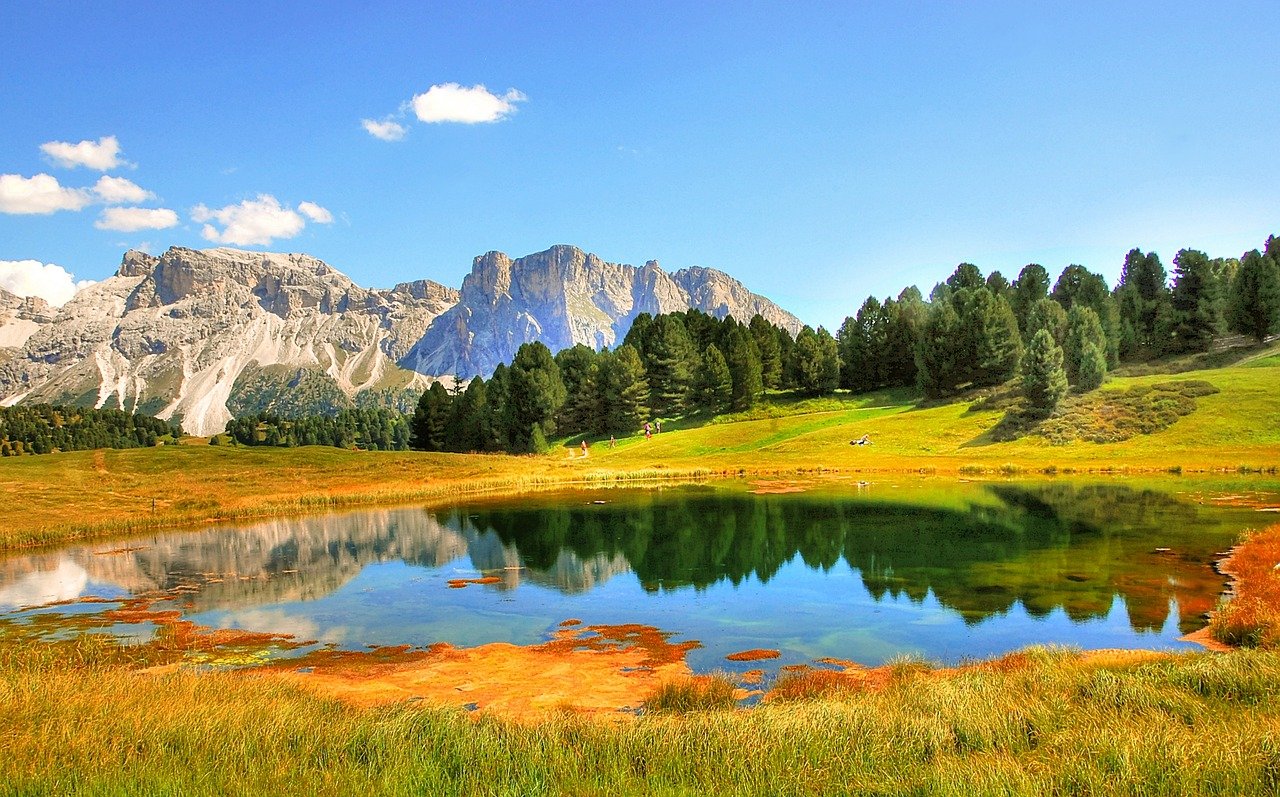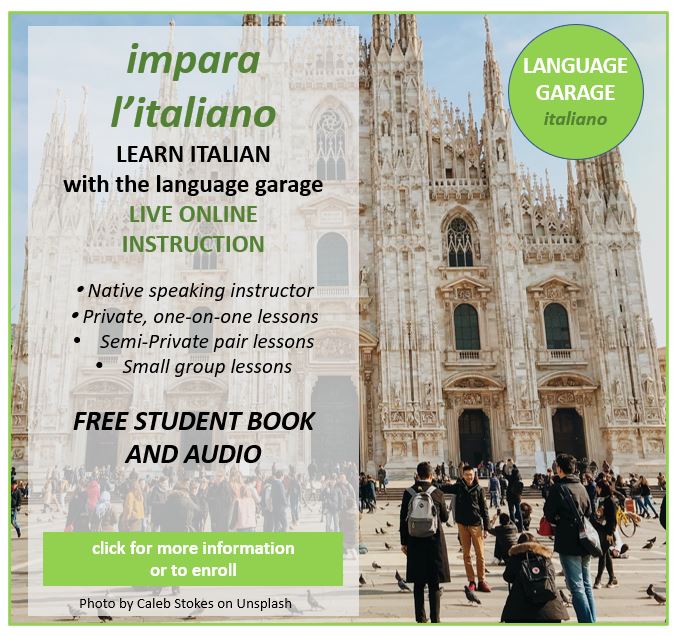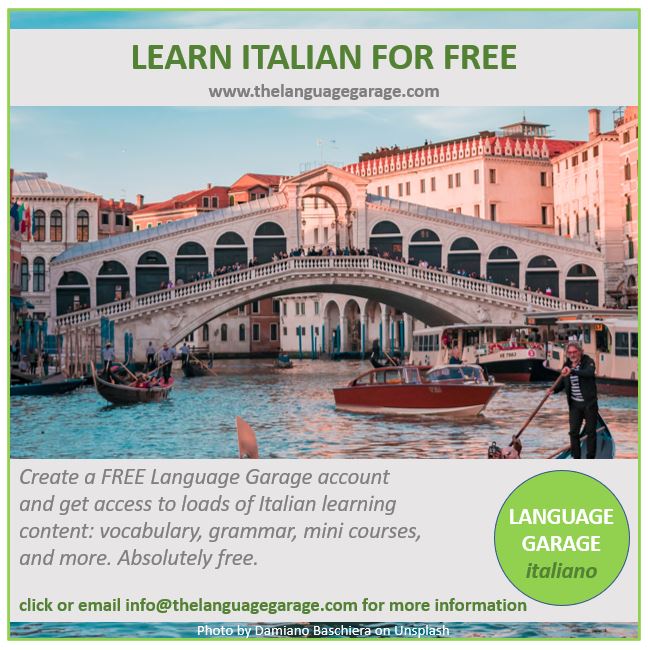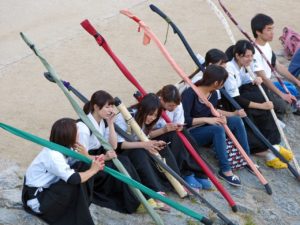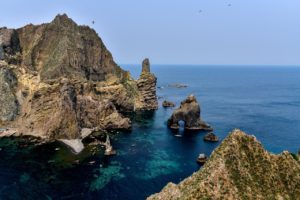Image by kordula vahle from Pixabay
In this post we’ll learn some vocabulary and expressions that you can use to talk about the natural world.
I fiori, gli alberi, l’erba e l’aria fresca: Flowers, Trees, Grass, and Fresh Air
Let’s start with some basics of nature that you can find around you even if most of the nature you see is in a park: un albero (a tree), un fiore (a flower), un giardino (a garden), l’erba (grass), una pianta (a plant), un lago (a lake), uno stagno (a pond), un sentiero (a path), un bosco (woods). You’re probably not going to see much wildlife in a park, but if you’d like to know how to talk about the animals you do see, check out this post.
- Ci sono molti alberi nel parco.
There are lots of trees in the park. - Guarda che bel fiore.
Look at that beautiful flower.
- Sediamoci sull’erba.
Let’s sit in the grass. - Sediamoci sulla panchina accanto al giardino.
Let’s sit on the bench next to the garden. - C’è un sentiero nel bosco.
There’s a path through the woods. - Facciamo un giro intorno allo stagno.
Let’s walk around the pond. - Ci sono pesci in questo lago?
Are there fish in this lake? - Il lago è poco profondo o profondo?
Is the lake shallow or deep?
Gli alberi e le piante: Trees and Plants
No matter where we are, there’s usually some kind of plant life around us, even if it’s in a pot in the corner of your office: una pianta d’appartamento (houseplant), un vaso di fiori (flowerpot), una rosa (rose), una spina (thorn), la terra, il terreno (soil), una foglia (leaf), una ghianda (acorn), uno stelo (stem), un seme (seed), una noce (nut), innaffiare una pianta (to water a plant), piantare un seme (to plant a seed), sbocciare/fiorire; i fiori sbocciano/fioriscono (to bloom; flowers bloom), crescere; le piante crescono (to grow; plants grow).
- Ho bisogno di innaffiare le mie piante.
I need to water my plants. - Abbiamo molte piante d’appartamento.
We have a lot of houseplants. - È un bellissimo vaso di fiori.
That’s a beautiful flowerpot. - Le foglie di quella pianta stanno diventando marroni.
That plant’s leaves are turning brown. - Le ghiande cadono dall’albero.
Acorns are falling from the tree. - Le rose hanno spine sui loro steli.
Roses have thorns on their stems. - Quell’albero è un acero o una quercia?
Is that tree a maple or an oak? - I pini sono verdi in inverno.
Pine trees are green in the winter. - Ho piantato semi di pomodoro in giardino.
I planted tomato seeds in the garden. - I fiori sbocciano in primavera.
The flowers bloom in the spring. - Le piante del tuo giardino crescono rapidamente.
The plants in your garden are growing quickly.
Le colline, i fiumi e le valli: Hills, Rivers, and Valleys
Let’s add some more nature vocabulary: la collina (hill), la valle (valley), il fiume (river), il ruscello (stream), la cascata (waterfall); il campo (field), il prato (meadow), la roccia (rock), il masso (boulder), il pantano (swamp).
- La nostra casa è su una collina.
Our house is on a hill. - Viviamo vicino a un fiume.
We live next to a river. - Il fiume scorre veloce qui.
The river runs quickly here. - C’è una bellissima cascata nelle vicinanze.
There’s a beautiful waterfall nearby. - Ci sono molte fattorie nella valle.
There are a lot of farms in the valley. - C’è un piccolo ruscello nel bosco vicino a casa nostra.
There is a little stream in the woods near our house. - Abbiamo attraversato il campo.
We walked across the field. - Ci sono bellissimi fiori selvatici nel prato.
There are beautiful wild flowers in the meadow. - Ci sono un sacco di rocce e massi sul fianco della collina.
There are a lot of rocks and boulders on the hillside. - Questa strada passa attraverso una palude.
This road goes through a swamp.
Le montagne e le foreste: Mountains and Forests
If you ever get to the mountains, you may need to say: una montagna (a mountain); una catena montuosa (a mountain range); la vetta della montagna (the summit of the mountain); fare escursioni in montagna (to hike in the mountains); scalare una montagna (to climb a mountain); un picco (a peak); una scogliera (a cliff); una foresta (a forest); accamparsi nella foresta (to camp in the forest);i pini (pine trees); gli alberi d’acero (maple trees); le quercie (oak trees); le betulle (birch trees); gli animali selvaggi (wild animals).
- Ci sono due catene montuose in questo paese.
There are two mountain ranges in this country. - Possiamo vedere bellissime montagne dalla nostra finestra.
We can see beautiful mountains from our window. - Quanto è alta la vetta di questa montagna?
How high is the summit of this mountain? - Le cime delle montagne sono coperte di neve.
The mountain peaks are covered in snow. - Quanto sono alte quelle scogliere?
How high are those cliffs? - Mi piace accamparmi nella foresta.
I like to camp in the forest. - Ci sono pini/aceri/betulle/querce in questa foresta.
There are pine trees/maple trees/birch trees/oak trees in this forest. - Ci sono animali selvatici in questa foresta?
Are there wild animals in this forest?
Il mondo: The World
Let’s finish with some geographical terms that you can use to talk about the natural world: un continente (continent), un oceano (ocean), un mare (sea), una baia (bay), una costa (coast), un’isola (island), una penisola (peninsula), un deserto (desert), una giungla (jungle), un ghiacciaio (glacier), un’iceberg (iceberg), Il polo nord/sud (north/south pole), il nord/il sud/ l’est/ l’ovest (north/ south/ east/ west).
- Quanti continenti ci sono?
How many continents are there? - L’oceano è ampio e profondo.
The ocean is wide and deep. - Amo nuotare in mare.
I love swimming in the sea. - Il fiume sfocia in una grande baia.
The river empties into a big bay. - Abbiamo guidato lungo la costa.
We drove along the coast. - Devi prendere un traghetto per raggiungere l’isola.
You have to take a ferry to get to the island. - Il deserto è caldo e secco.
The desert is hot and dry. - Molte piante e animali diversi vivono nella giungla.
Many different plants and animals live in the jungle. - I ghiacciai stanno diventando sempre più piccoli.
The glaciers are getting smaller and smaller. - Ci sono iceberg nell’oceano vicino al polo nord/sud.
There are icebergs in the ocean near the north/south pole. - Il sole sorge a est e tramonta a ovest.
The sun rises in the east and sets in the west.
Do you want to learn Italian?
Check out our other posts on Italian language, culture, and more. And if you’re looking for convenient and affordable live Italian lessons with a real teacher, check out The Language Garage. Our lessons are given online in a virtual classroom, so it doesn’t matter where you live or work – we can come to you. And we have flexible options, with a free trial so that you can decide if there’s a fit. Check us out!
